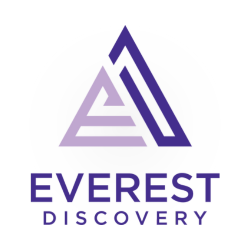Effective Strategies for Managing eDiscovery Costs
Electronic discovery has become an integral part of modern litigation and legal processes. However, the costs associated with eDiscovery can quickly escalate if not managed effectively. In this blog post, we will explore some practical strategies that can help organizations minimize eDiscovery costs while still ensuring compliance and efficiency.
Implement a Proactive Information Governance Policy
An effective information governance policy is crucial for minimizing eDiscovery costs. By establishing clear guidelines on data retention, storage and disposal, organizations can reduce the volume of data subject to eDiscovery. Regularly reviewing and updating the policy ensures that irrelevant and obsolete data is eliminated, resulting in reduced search and review efforts during discovery.
Conduct Early Case Assessment
Early case assessment involves analyzing data at the outset of litigation to gain a better understanding of its scope and potential value. By identifying key custodians, relevant data sources and potential risks early on, organizations can make informed decisions about which data to collect, process and review. This targeted approach reduces the overall volume of data to be reviewed, leading to significant cost savings.
Utilize Technology-Assisted Review
Technology-assisted review, also known as predictive coding or machine learning, can significantly reduce eDiscovery costs. TAR leverages advanced algorithms to prioritize and categorize documents, allowing legal teams to focus their review efforts on the most relevant materials. By training the system on a subset of reviewed documents, TAR can accurately predict the responsiveness of the remaining documents, resulting in substantial time and cost savings.
Collaborate with Opposing Parties
In some cases, cooperation and collaboration with opposing parties can lead to cost reductions. By engaging in discussions about data collection, processing and sharing protocols, parties can eliminate duplicate efforts and streamline the overall eDiscovery process. Cooperation can also involve mutually approving data sampling methods or using agreed-upon third-party vendors, reducing costs for both parties involved.
Leverage Cloud-Based eDiscovery Solutions
Cloud-based eDiscovery solutions offer several advantages over traditional on-premises software. They eliminate the need for expensive infrastructure investments and provide scalable storage and processing capabilities. Cloud-based solutions also offer enhanced collaboration features, allowing geographically dispersed legal teams to work seamlessly on document review and analysis. By leveraging these platforms, organizations can significantly reduce eDiscovery costs while improving efficiency.
Invest in Training and Expertise
Investing in the training of legal and IT personnel can yield long-term cost savings. Properly trained professionals can make sure you are navigating the eDiscovery processes more efficiently, reducing the risk of errors and rework. When partnering with an eDiscovery expert, consider its areas of expertise. At Everest Discovery, we provide consultation to our clients through each phase of the EDRM and help in assessing, developing and implementing defensible solutions to simplify even the most complex matters. You need a company on your side with in-depth knowledge of best practices, industry trends and cost-saving strategies. When you work with Everest, our experts act as an extension of your team so you can expect unmatched responsiveness, attention to detail and a proactive approach. We implement quality control measures to help you through the entire process so you can ensure the best outcome for your eDiscovery project.
Managing eDiscovery costs is a critical concern for organizations involved in litigation or regulatory investigations. By implementing proactive information governance policies, leveraging early case assessment, adopting technology-assisted review, collaborating with opposing parties, utilizing cloud-based solutions and investing in training and finding the right experts, organizations can effectively manage their eDiscovery costs while ensuring compliance and achieving favorable outcomes. Utilization of modern technology and an organization’s ability to communicate efficiencies related to significant cost reduction can positively impact new business development and enhance current client relations. By taking a strategic and proactive approach, organizations can navigate the complexities of eDiscovery more efficiently, ultimately saving time, money and valuable resources.








